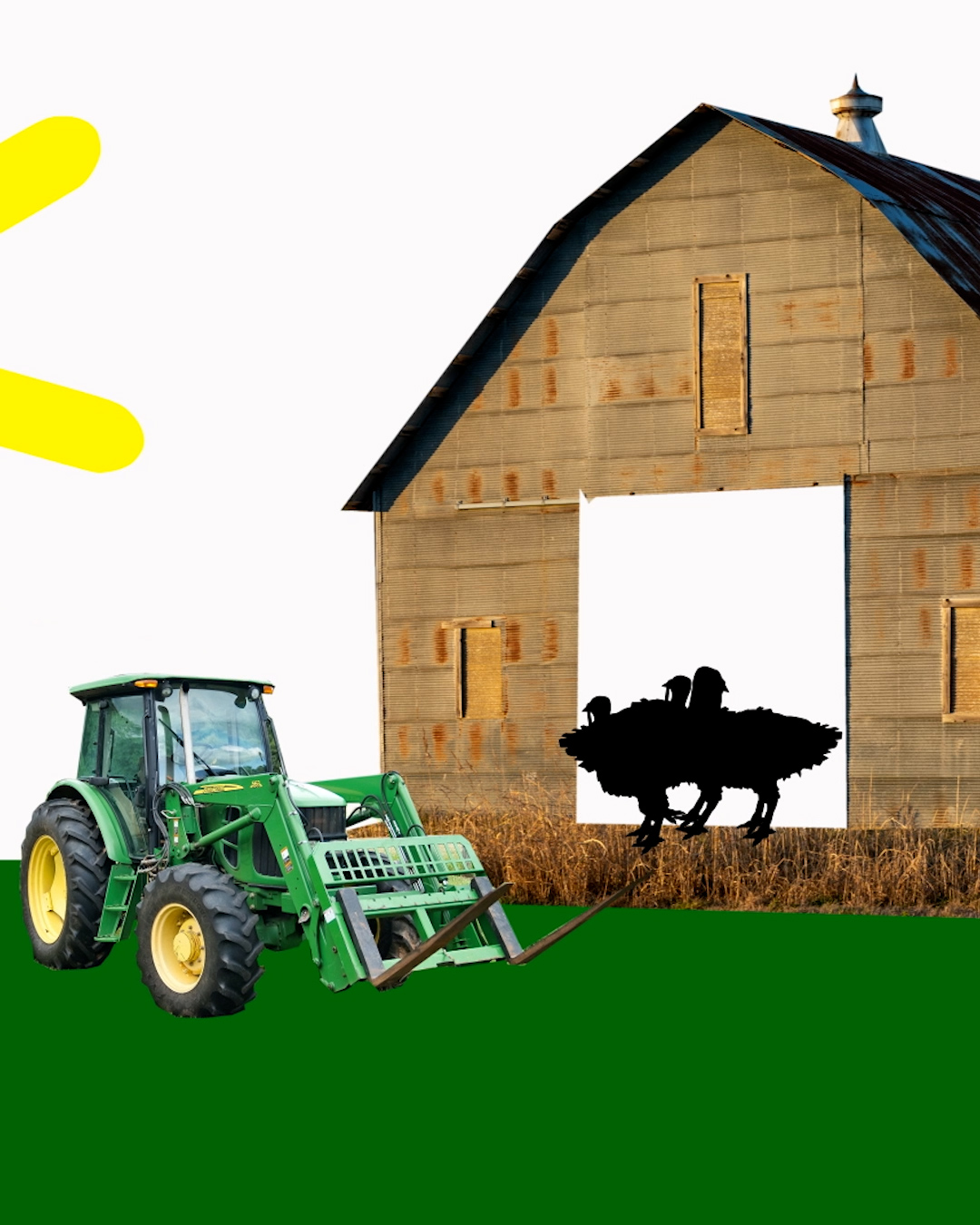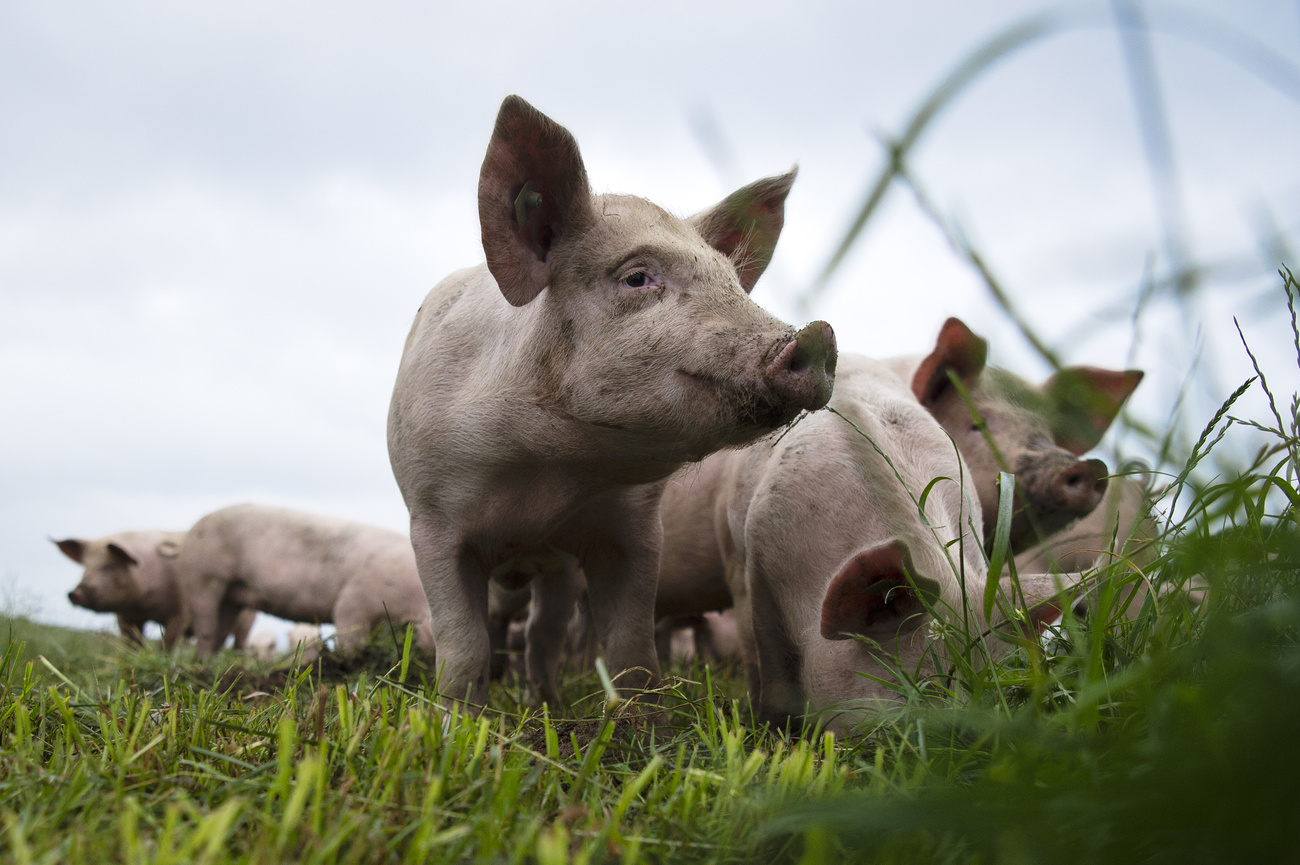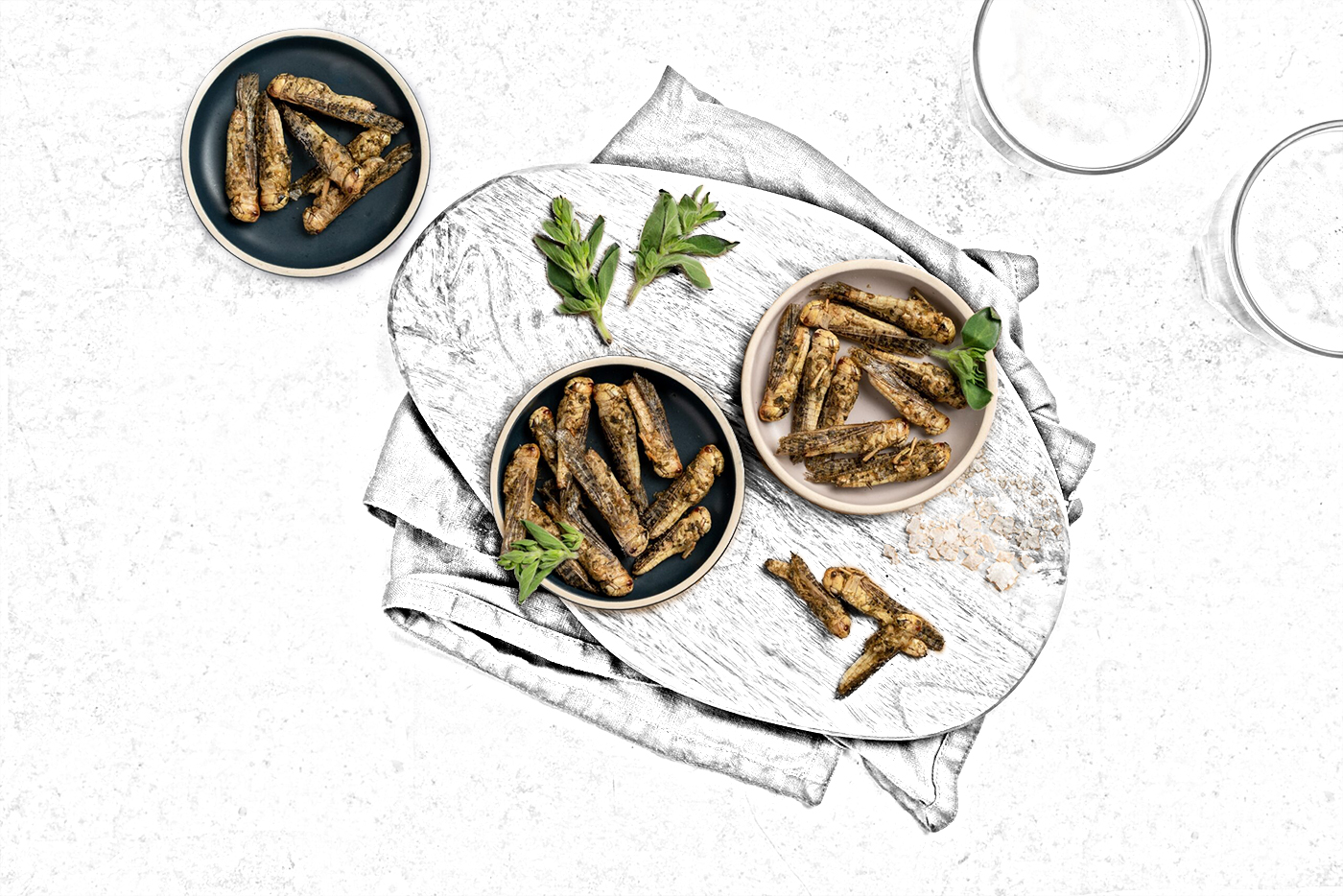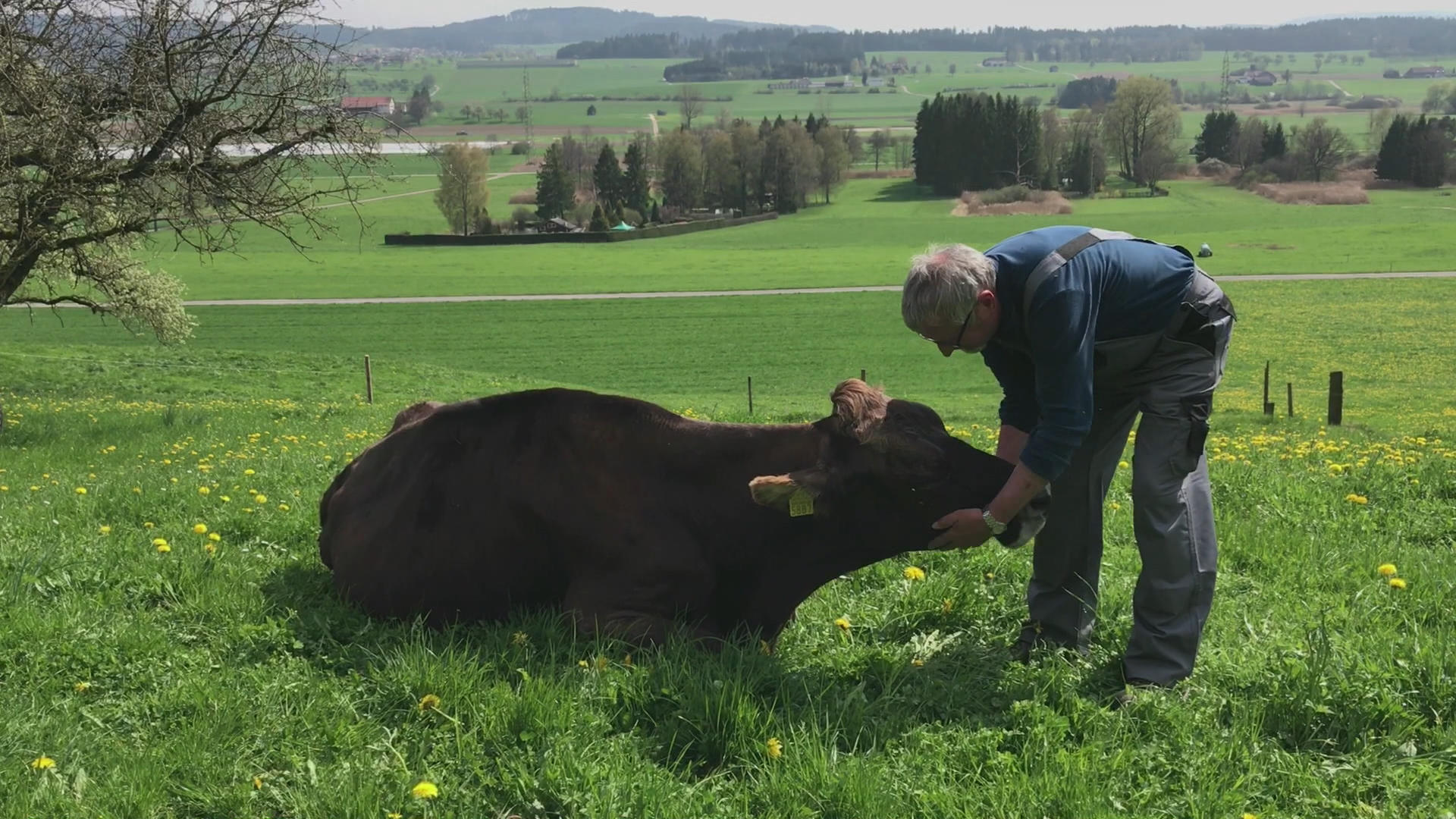Marcel Dettling: ‘The Swiss love their meat’

On September 25, Swiss citizens will vote on a ban on intensive livestock farming. It aims to eradicate factory farming and calls for stricter import regulations for animal products.
A ban on intensive livestock farming would pose a threat to Swiss agriculture, says Swiss People’s Party parliamentarian Marcel Dettling. He is a farmer from canton Schwyz and sits on the board of several farmers’ associations and other agricultural organisations. Dettling says a ban would drive up prices for animal products and lead to an increase in imports.

More
Animal welfare: people’s initiative takes aim at factory farming
SWI swissinfo.ch: Opponents of the ban on intensive livestock farming argue that factory farming does not exist in Switzerland. Is this true?
Marcel Dettling: Yes. There is no intensive livestock farming in Switzerland. Farmers are not allowed to keep more than 300 calves, 1,500 pigs and 18,000 laying hens per farm. In Germany by comparison, farms are allowed to keep 600,000 laying hens and hundreds of thousands of pigs, and so on. These numbers are a clear indication that there is no factory farming in Switzerland.
SWI: In any case, the number of Swiss farms has decreased while they keep more animals. Is our animal protection legislation still appropriate or should it be adjusted?
M.D.: It’s not that simple. Over the past few years, the government has repeatedly warned farmers to increase their holdings and work more efficiently. They have been told that they were too small for Switzerland and should expand, buy additional farms and cultivate more fields.
And now, the backers of this initiative say farms are too big and should get smaller. Swiss farmers don’t have a clue about what is expected from them. They no longer know what role Swiss agriculture should assume.
SWI: The initiative is mainly aimed at industrial farming. Wouldn’t that be an opportunity for the owners of small farms?
M.D.: No, on the contrary. The core of this initiative is to introduce organic certification. This means that the criteria of the 2018 Bio Suisse standards are to be introduced throughout the country and adopted by all farms, no matter how big they are. There is no more room to manoeuvre.
In Switzerland, we have a regular outdoor exercise (RAUS) programme which guarantees every animal regular exercise. It is voluntary and is financed by the government. If it were compulsory, farmers would no longer receive subsidies which, after all amount to CHF300 million which mainly goes to small farmers. Almost 90% of the farmers in our mountain region participate in this voluntary programme. If it became obligatory, it would impact those who work in exemplary fashion, allow their cattle to exercise and do not harm their dignity. They would be punished by losing their financial incentive.

More
Swiss factory farming ban to be decided at the ballot box
SWI: Even the initiators say that the cost of animal products would increase. But in view of climate change, wouldn’t it be a good if we consumed fewer animal products?
M.D.: In an ideal world, Switzerland should produce the broadest possible range of food products within its agricultural capabilities. If accepted, this initiative would boost imports and increase the range of foreign products in our country.
Let’s start with the consumers. If possible, everything the people want should be produced in Switzerland and not be imported. Surveys indicate that at today’s self-sufficiency rate, our poultry consumption would plunge from 58% to 5% while our pork consumption would plummet from 92% to almost 50%. We would have to import the rest. For sure, this initiative is the wrong approach.
SWI: Estimates say that one third of all foodstuffs end up in the bin. Wouldn’t higher prices be an incentive to cut food waste?
M.D.: Food waste is a huge problem, not only with meat but with many other products. But how much burden can we place on the consumers? Energy costs, rental and petrol prices are on the rise, and people often have to find other places to save money. Meat for example is a popular item to buy abroad. If our prices continue to rise, more Swiss will cross the border to buy cheap meat. We have observed this trend for a few years. At the end of the day, it impacts our own agriculture.
SWI: Meat consumption has dropped continuously since the 1980s. Does agriculture stay abreast of these changes?
M.D.: Overall meat consumption rose in Switzerland in 2021. Per capita consumption also increased which indicates that this rise is also linked to personal choice and not just due to immigration and resident population growth. The media try to spread the message that we should switch to a vegan or a vegetarian diet. In Switzerland, 70% of arable land is grassland and we need ruminants. They convert grass into meat and milk and feed the population. This is a perfect cycle for Switzerland, and the Swiss love their meat!
Opposing viewpoint: Green parliamentarian Meret Schneider explains why she supports the initiative to ban factory farming.

More
Meret Schneider: ‘We must reduce our meat consumption’
More
Adapted from German by Billi Bierling

In compliance with the JTI standards
More: SWI swissinfo.ch certified by the Journalism Trust Initiative





You can find an overview of ongoing debates with our journalists here. Please join us!
If you want to start a conversation about a topic raised in this article or want to report factual errors, email us at english@swissinfo.ch.